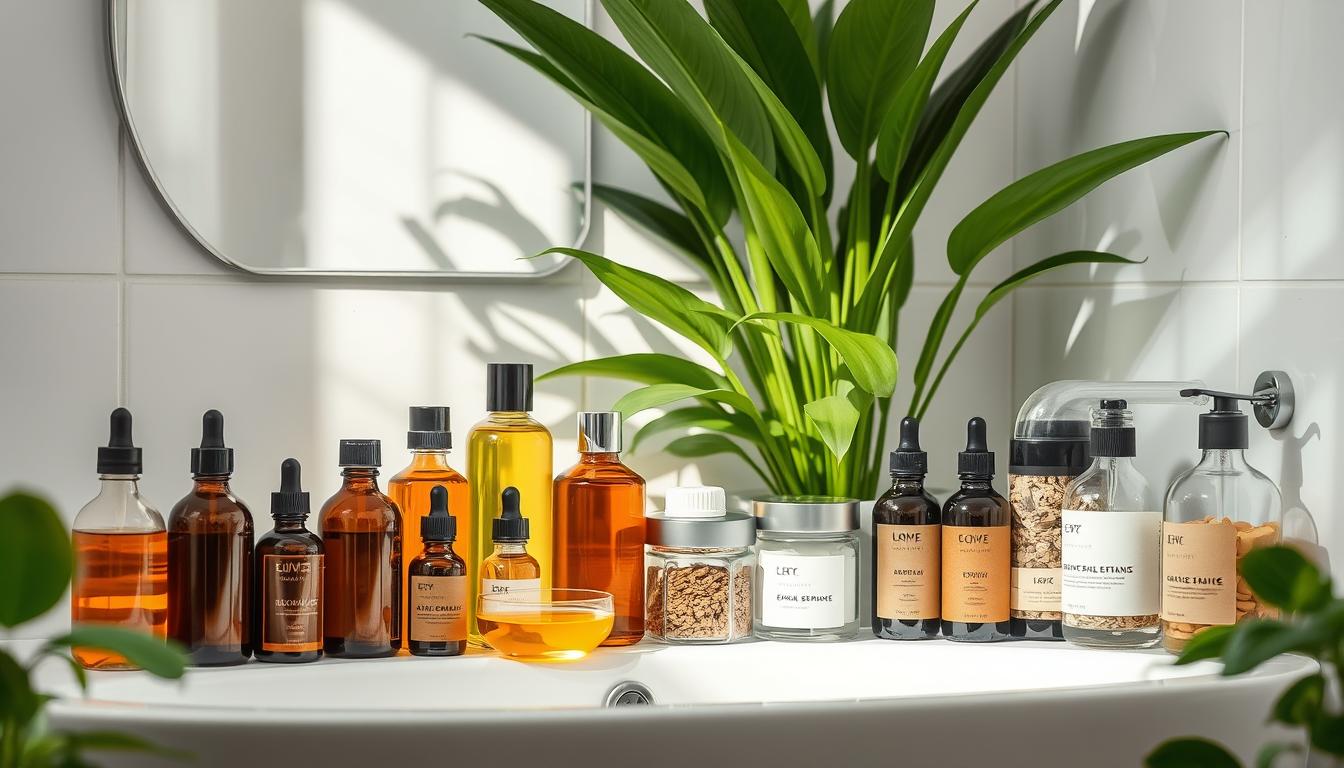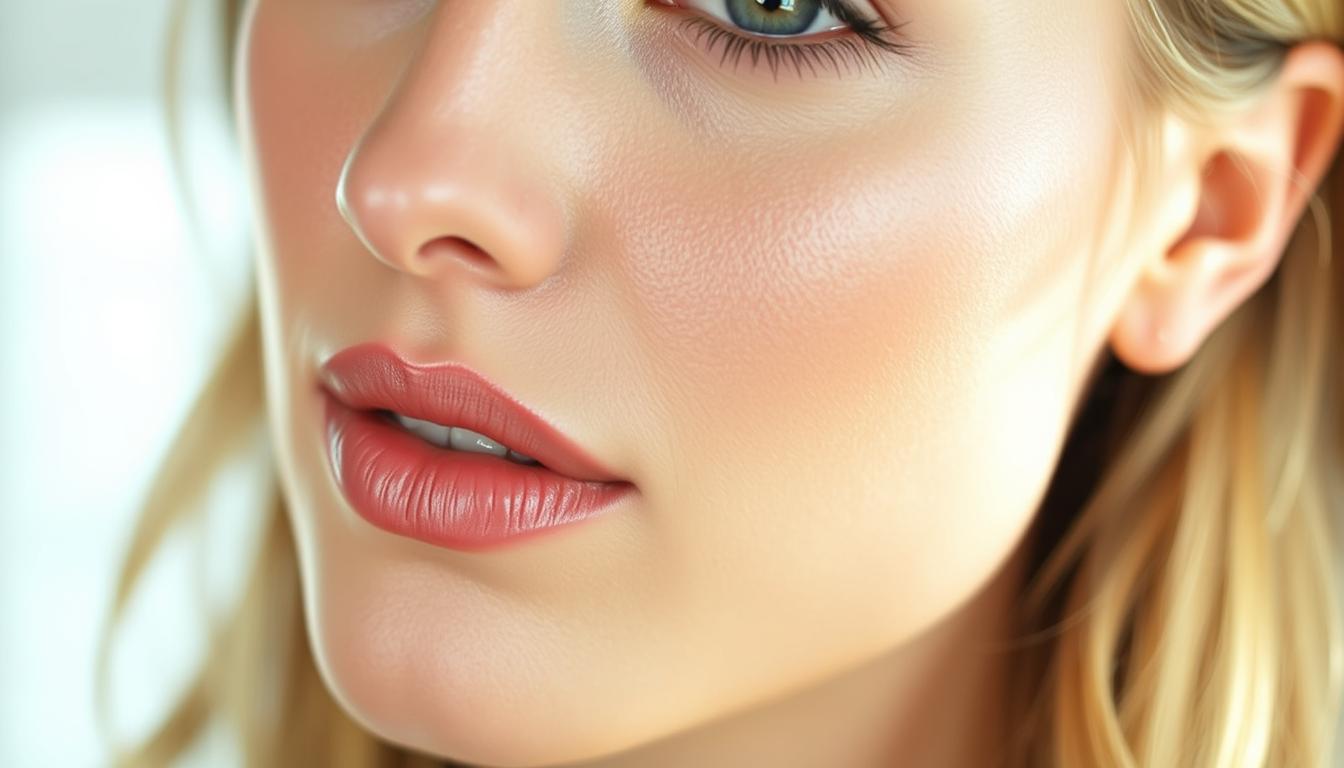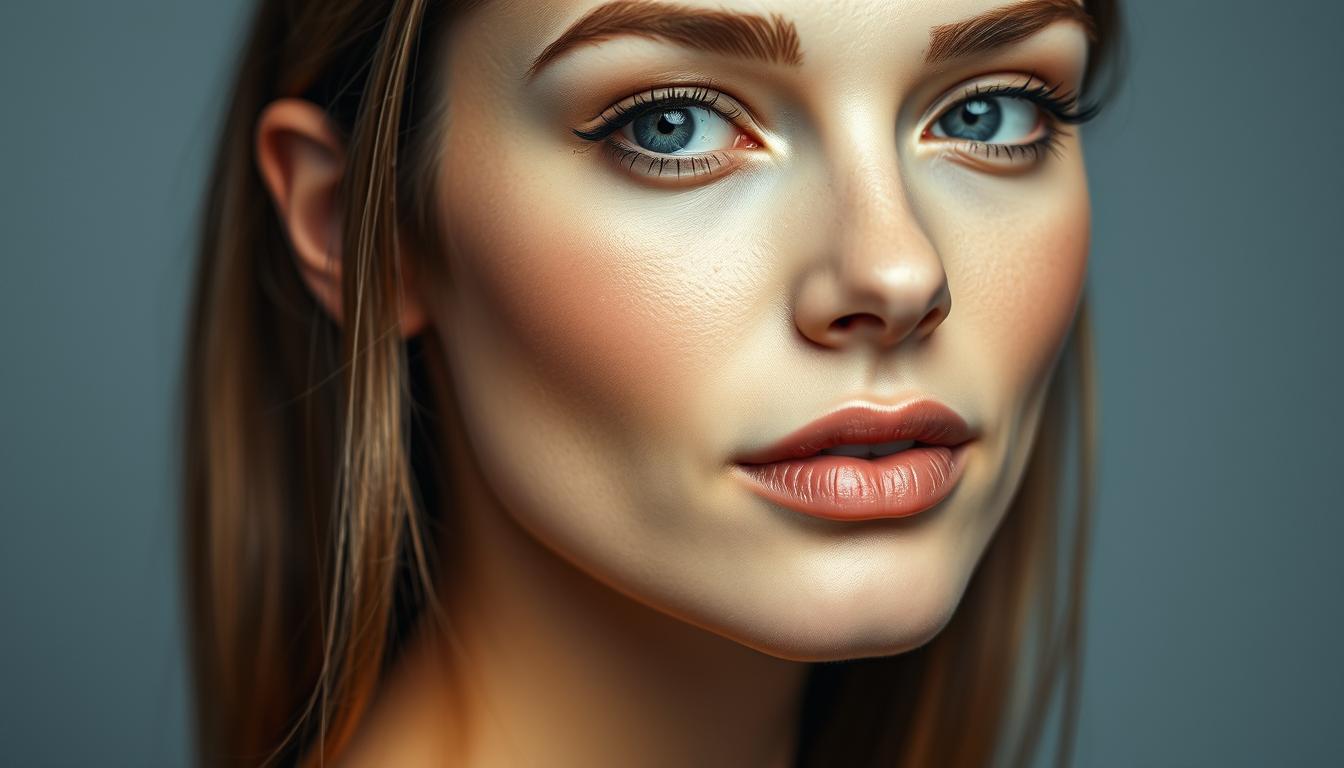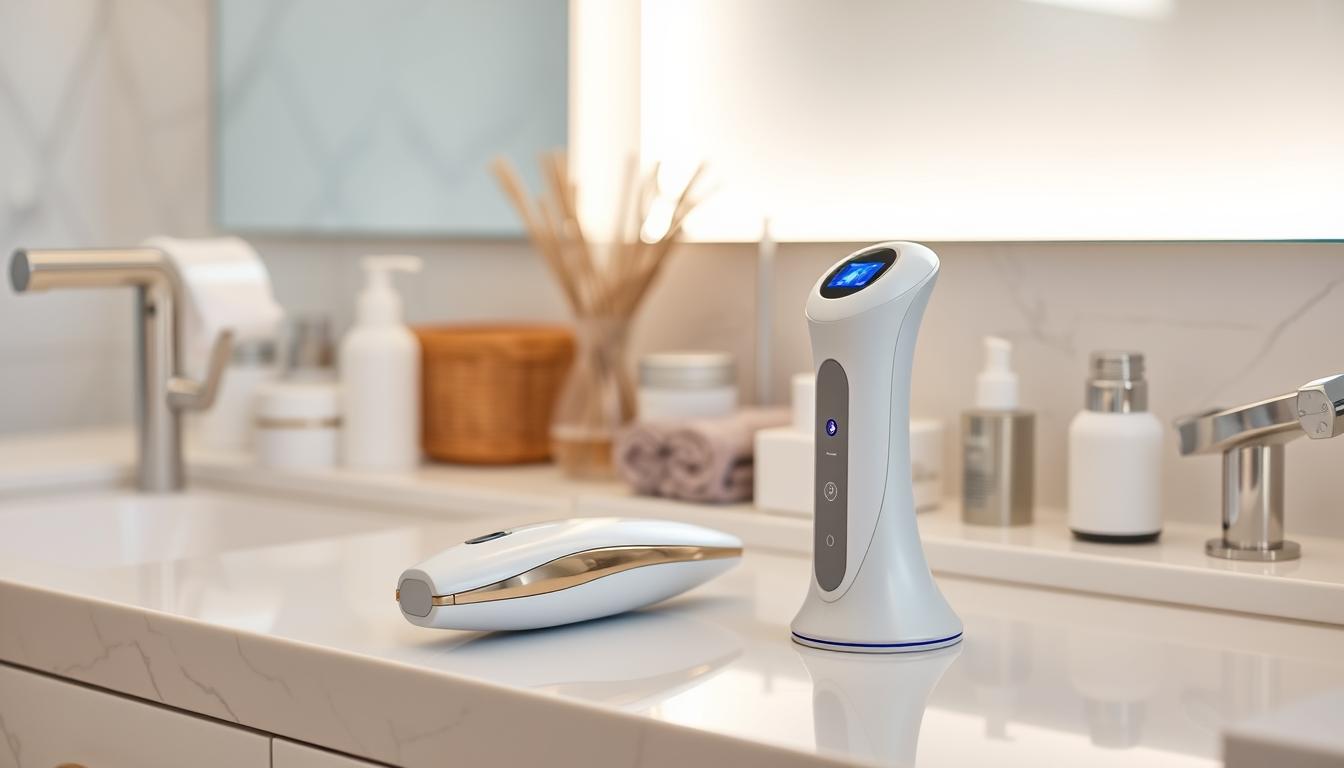Exploring skincare, I’ve noticed a big worry about allergic reactions to beauty products. It’s key to know about potential allergens in skincare. These ingredients can really affect our skin health. Knowing about the 11 Skin Care Ingredients That Can Trigger Allergic Reactions is very important.
Even products that seem safe can have hidden allergens. So, it’s crucial to be careful when picking skincare. Learning about these allergens helps us take care of our skin better. This way, we can get healthier, brighter skin.
I’ll share my own experiences and tips on being careful with our skin. This helps us avoid bad reactions. It also makes our skin care routine better, without worrying about allergens or the 11 Skin Care Ingredients That Can Trigger Allergic Reactions.
Why I Started Investigating Skincare Allergies
I started looking into skincare allergies when my skin reacted badly to products I loved. It was frustrating to deal with reactive skin. So, I set out to learn about common allergens in skincare products.
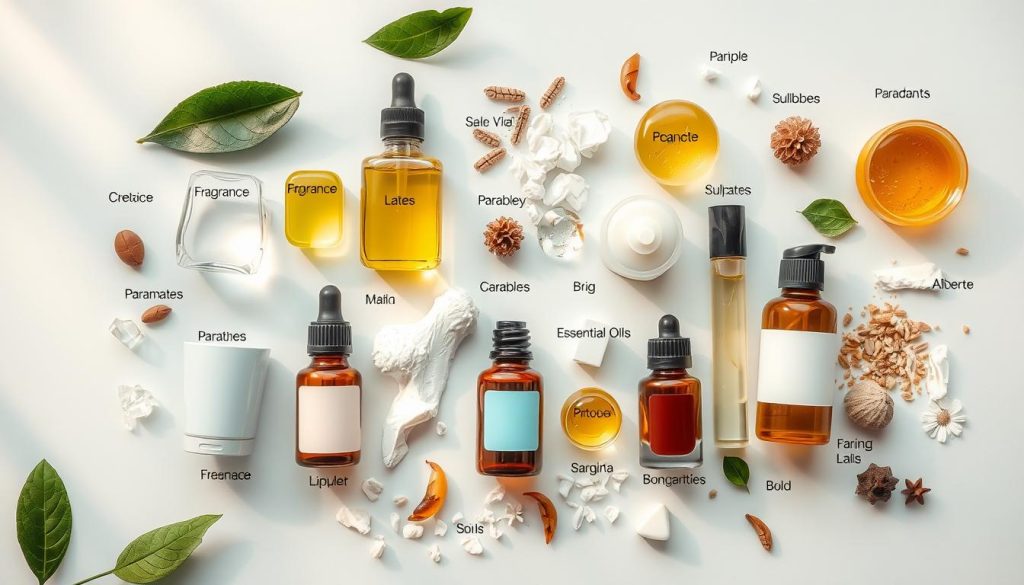
My Personal Experience with Reactive Skin
For years, I had unexpected breakouts and redness after using skincare products. It was upsetting to spend money on products that didn’t work. This led me to research what causes these sensitivities and how to avoid them.
The Rising Prevalence of Skincare Sensitivities
More people are experiencing skin sensitivities lately. Studies show a big rise in allergic reactions to skincare products. This shows we need to know more about the ingredients in our beauty routines.
Understanding the Difference Between Allergies and Irritation
| Allergies | Irritation | |
|---|---|---|
| Cause | Immune system reaction to specific allergens | Direct reaction to a substance, not involving the immune system |
| Symptoms | Redness, itching, swelling, hives | Dryness, stinging, minor redness |
| Onset | Can be immediate or delayed | Usually immediate |
| Treatment | Avoidance of allergens, antihistamines | Adjusting or discontinuing the product |
The Science Behind Skin Reactions to Beauty Products
Understanding how your skin reacts to beauty products involves exploring the biological processes that occur upon exposure to various ingredients. When you apply a skincare product, its components interact with your skin’s outer layer, the epidermis.
Allergic reactions to skincare ingredients happen when your immune system mistakenly identifies a harmless substance as a threat. This triggers inflammation, redness, and itching. On the other hand, irritation can occur without involving the immune system, often caused by harsh chemicals disrupting the skin barrier.
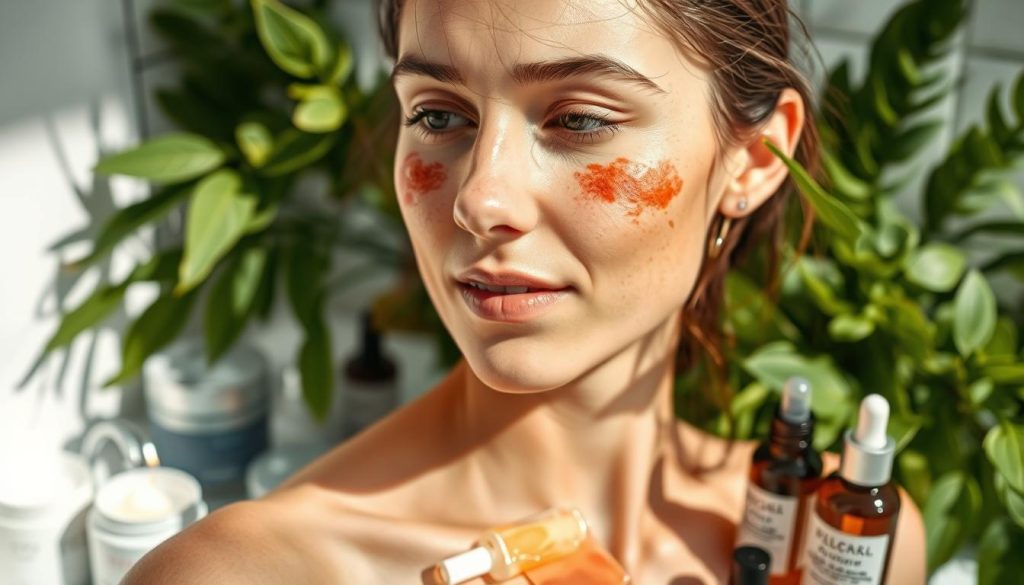
To minimize adverse effects, it’s essential to know the sensitive skin ingredients to avoid. Common culprits include:
- Synthetic fragrances
- Parabens
- Alcohols
- Sulfates
- Essential oils
Here’s a table highlighting some common allergens and their effects:
| Ingredient | Potential Reaction |
|---|---|
| Synthetic Fragrances | Redness, itchiness |
| Parabens | Inflammation, irritation |
| Alcohols | Dryness, peeling |
| Sulfates | Sensitization, cracking |
| Essential Oils | Burning sensation, allergic reactions |
11 Skin Care Ingredients That Can Trigger Allergic Reactions
While making my skincare allergen list, I found many common ingredients that can cause reactions. Knowing about these potential allergens in beauty products is key for healthy skin.
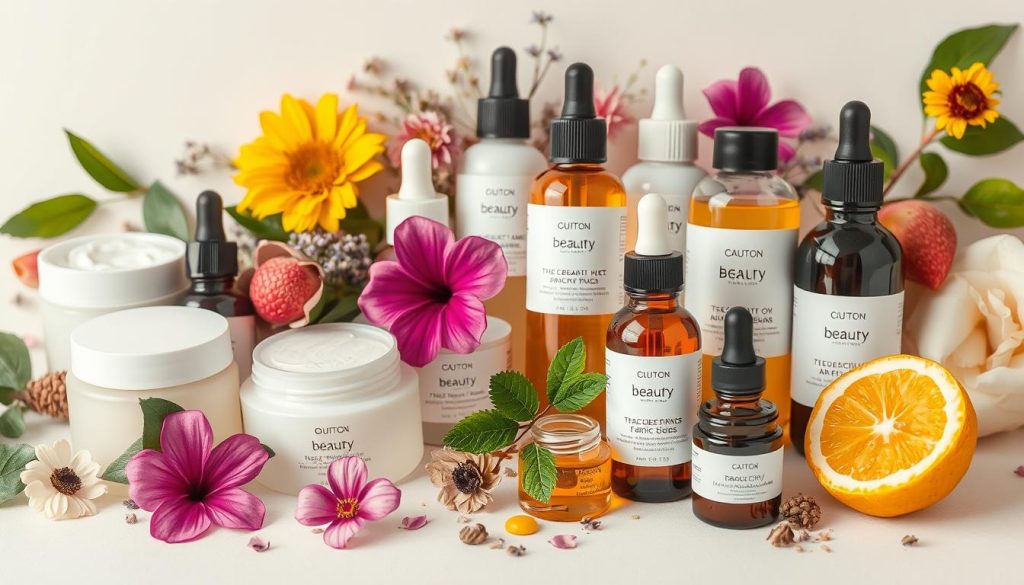
Synthetic Fragrances and Perfumes
Synthetic fragrances are known for causing irritation and allergic reactions. They are often just listed as “fragrance” on labels, making them hard to spot.
Preservatives (Including Parabens)
Preservatives like parabens help keep products fresh longer but can mess with hormone function and cause skin sensitivities.
Chemical Sunscreen Agents
Chemical sunscreens, like oxybenzone, absorb UV rays but can cause allergic reactions and harm the environment.
Essential Oils
Even though natural, essential oils like lavender and tea tree oil can be strong allergens for sensitive skin.
Common Plant Extracts
Plant extracts, like aloe vera and chamomile, are popular but can sometimes cause allergic reactions.
How Your Skin Warns You About Allergenic Ingredients
I’ve learned to listen to my skin’s signals. It helps me avoid uncomfortable reactions. Here’s how my skin warns me about irritants in skincare products.
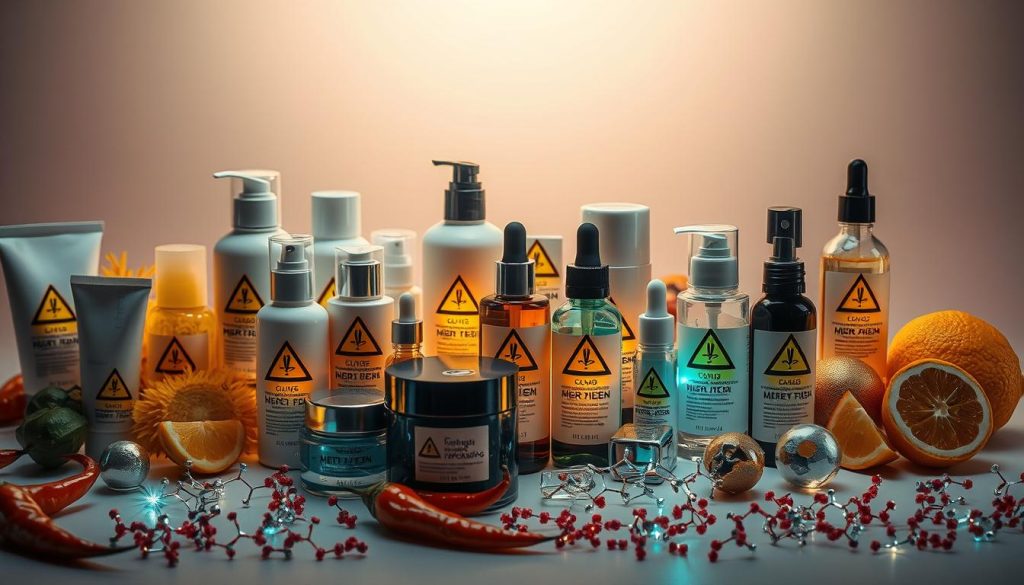
Immediate Reaction Signs
My skin might turn red, itch, or swell right after I apply a product. These signs mean I have a skin allergy from cosmetic ingredients. It’s a clear warning to stop using the product.
Delayed Reaction Patterns
Sometimes, the signs appear later. I might see dry patches or increased sensitivity. Even hours after use, irritants can cause discomfort. I need to keep an eye on it.
When to Seek Medical Help
If my skin reactions are severe or don’t get better, I see a dermatologist. Persistent redness or swelling from skin allergies needs professional help.
The Hidden Sources of Allergenic Ingredients
When I started exploring skincare, I was shocked to find allergenic ingredients hiding in plain sight. They often have different names or blend into product formulas without notice.
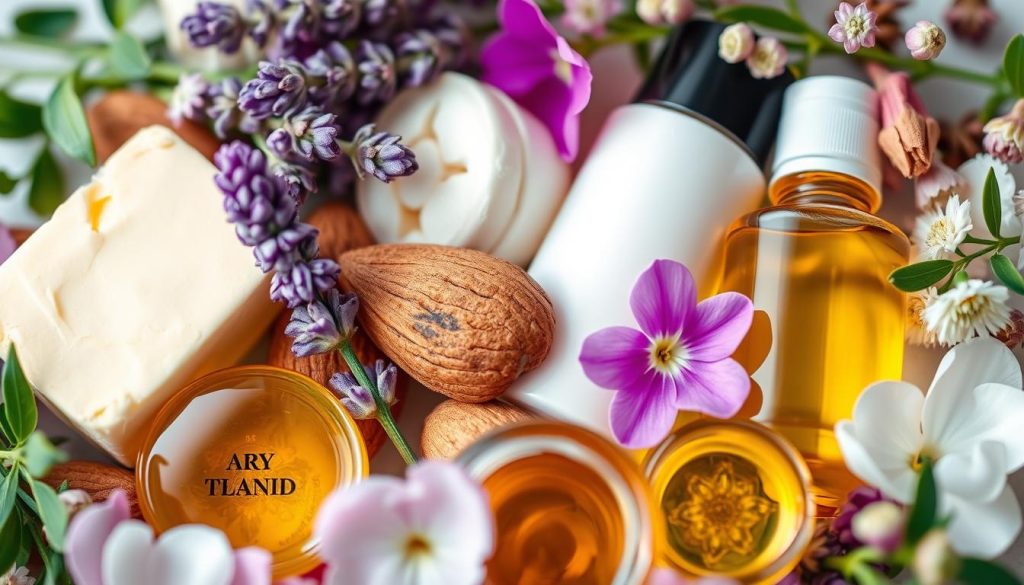
- Fragrance can hide harmful chemicals like phthalates.
- Ethoxylated compounds are sneaky surfactants that can irritate your skin.
- Parabens are often called methylparaben or propylparaben.
- Sodium lauryl sulfate is a common cleanser that might cause reactions.
Knowing about these hidden sources helps me pick safer products. Always check labels carefully. Look out for names that might be allergenic skincare ingredients.
| Common Ingredient | Hidden Names |
|---|---|
| Fragrance | Parfum |
| Parabens | Methylparaben, Ethylparaben, Propylparaben |
| Sodium Lauryl Sulfate | SLS, Sodium Dodecyl Sulfate |
| Essential Oils | Lavender Oil, Tea Tree Oil |
Testing Products for Allergic Reactions
Before adding a new product to your skincare routine, it’s crucial to ensure it won’t trigger any adverse reactions. This proactive approach helps you enjoy the benefits of skincare without the worry of unexpected allergies.
Patch Testing Methods
Patch testing is a simple way to identify potential allergens in skincare products. Here’s how you can perform it:
- Select a small area: Choose a discreet spot, like behind your ear or on your wrist.
- Apply a small amount: Use the product exactly as you would normally.
- Wait and observe: Leave the product on for 24-48 hours, watching for any signs of irritation or redness.
Reading Product Labels Effectively
Understanding product labels is key to avoiding ingredients causing skin allergies. Pay attention to the following:
- Ingredient list: Look for known common allergens in skincare products, such as parabens or synthetic fragrances.
- Active ingredients: Check for ingredients that target your skin concerns but may also cause reactions.
- Expiration date: Ensure the product is fresh, as expired products can degrade and become irritating.
By carefully testing new products and reading labels, you can minimize the risk of encountering ingredients causing skin allergies. This ensures a safer and more enjoyable skincare experience.
Safe Alternatives for Sensitive Skin
Finding the right skincare can be tough when you’re dealing with allergic reactions to skincare ingredients. I’ve discovered some great options that are gentle on my skin.
Hypoallergenic Options
Hypoallergenic products are made to lower allergy risks. Brands like Cetaphil and Vanicream use simple ingredients. They are perfect for sensitive skin because they avoid common irritants.
Natural vs. Synthetic Alternatives
Choosing between natural and synthetic ingredients is key. Natural options like aloe vera and chamomile are soothing and less likely to irritate. Synthetic ingredients, though, offer stability and a longer shelf life but might include sensitive skin ingredients to avoid.
| Type | Pros | Cons |
|---|---|---|
| Hypoallergenic | Minimizes allergies, gentle formulations | Limited variety, sometimes pricier |
| Natural | Soothing, eco-friendly | Can be less stable, potential for natural allergies |
| Synthetic | Longer shelf life, consistent results | May contain irritants, less eco-friendly |
Building a Skin-Safe Beauty Routine
Creating a skin-safe beauty routine has changed my life. I’ve chosen products carefully to avoid reactions and keep my skin looking great.
Here’s how you can build your own routine:
- Start Simple: Begin with a basic skincare allergen list. Pick a gentle cleanser, moisturizer, and sunscreen without known potential allergens in beauty products.
- Introduce Products Gradually: Add one new product at a time, waiting a few days before introducing the next. This helps identify any reactions early.
- Read Labels Carefully: Always check ingredient lists to avoid hidden allergens. Familiarize yourself with common irritants.
- Patch Test: Before using a new product on your face, apply a small amount on your wrist to ensure there’s no adverse reaction.
- Maintain Consistency: Stick to your routine for at least a few weeks to allow your skin to adjust and respond positively.
Patience and consistency are key. By following a structured approach, you can enjoy a personalized skincare regimen that keeps your skin healthy and radiant.
My Recommended Products for Reactive Skin
I’ve tried many products and found a few that work well for sensitive skin. They reduce irritants in skincare products and help with skin allergies from cosmetic ingredients. These products are gentle yet effective.
Cleansers
A gentle cleanser is key for sensitive skin. I suggest CeraVe Hydrating Cleanser. It’s non-irritating and has ceramides to repair the skin barrier. This helps avoid skin allergies from cosmetic ingredients.
Moisturizers
For moisturizers, La Roche-Posay Toleriane Double Repair is top-notch. It’s free from common irritants in skincare products. It keeps my skin hydrated for a long time, making it calm and nourished.
Treatment Products
For treatments, Vanicream Moisturizing Cream is my favorite. It doesn’t have dyes, fragrance, or lanolin. This makes it perfect for avoiding skin allergies from cosmetic ingredients. It also treats dry patches well.
| Category | Product | Key Benefits |
|---|---|---|
| Cleansers | CeraVe Hydrating Cleanser | Restores skin barrier, non-irritating |
| Moisturizers | La Roche-Posay Toleriane Double Repair | Long-lasting hydration, fragrance-free |
| Treatment Products | Vanicream Moisturizing Cream | Free from dyes and fragrances, effective for dry skin |
Prevention Strategies I’ve Learned
Over time, I’ve learned how to keep my skin healthy. I’ve found ways to avoid reactions to certain skincare ingredients. Here are the main practices that help me:
- Read Labels Carefully: Always check the ingredient list for any of the 11 Skin Care Ingredients That Can Trigger Allergic Reactions. This helps me avoid products that may cause irritation.
- Introduce Products Slowly: When trying a new product, I start with a small amount to see how my skin reacts before using it regularly.
- Maintain a Simple Routine: A consistent skincare routine with fewer products reduces the risk of exposure to multiple allergens.
- Use Barrier Protectants: Moisturizers that strengthen the skin barrier are essential. They help protect my skin from environmental triggers and maintain hydration.
- Avoid Known Triggers: I steer clear of products with synthetic fragrances and harsh preservatives, as these are common allergenic skincare ingredients.
By following these strategies, I’ve enjoyed a smoother, more resilient complexion. It’s all about being proactive and mindful of what you apply to your skin.
When to Consult a Dermatologist
Sometimes, despite our best efforts, skin issues persist and require professional attention. Knowing when to seek help can make a significant difference in managing your skin health.
Signs You Need Professional Help
- Persistent redness or swelling that doesn’t improve with over-the-counter treatments.
- Severe itching or discomfort affecting your daily life.
- Unexplained rashes or unexpected changes in your skin.
- Signs of infection, such as oozing or pus-filled bumps.
Questions to Ask Your Skincare Provider
- What are the common allergens in skincare products that I should avoid?
- Can you identify ingredients causing skin allergies in my products?
- What alternative ingredients do you recommend for sensitive skin?
- Are there specific tests you suggest for identifying my skin sensitivities?
Conclusion
In this article, we looked at how different skincare ingredients affect sensitive skin. It’s important to know about allergic reactions to skincare ingredients. This helps keep your skin healthy.
Creating a beauty routine that’s safe for your skin is empowering. Always check the labels of products you use. Choose brands that are open and safe.
Being aware of your skin’s needs is crucial in today’s beauty world. Find products that match your skin’s sensitivities. Your skin’s health is important, and with the right products, you can have a glowing complexion.
